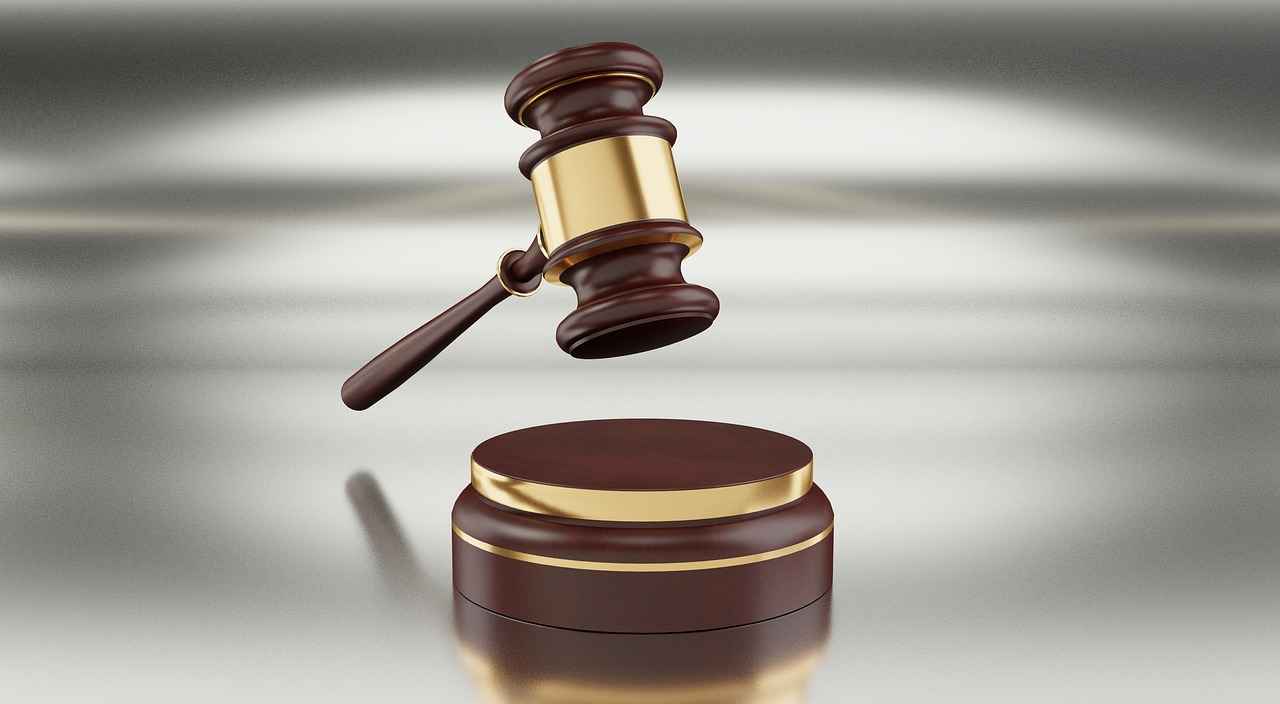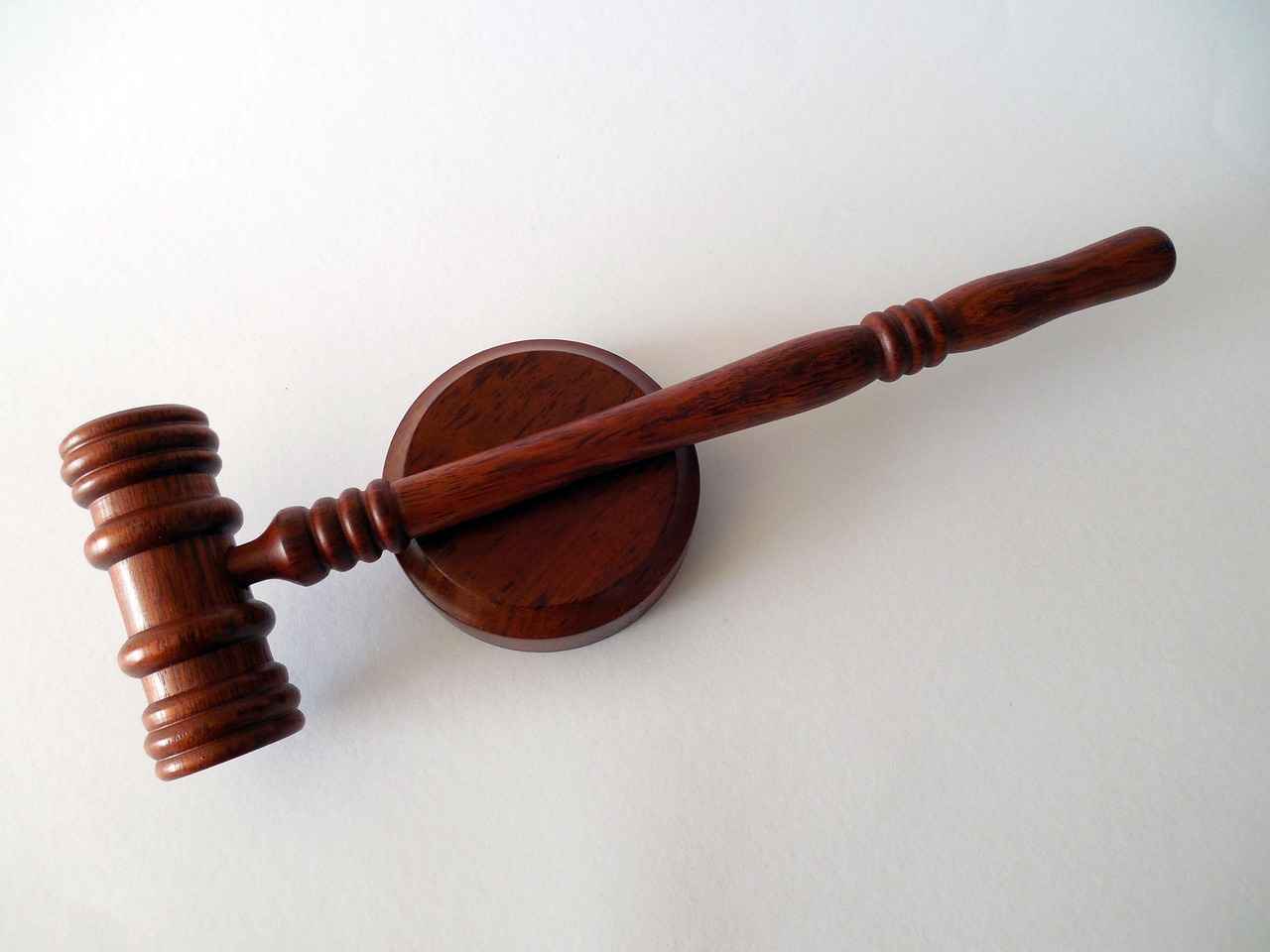This article provides insights on identifying qualified lawyers for various legal cases in Fort Wayne, Indiana, emphasizing practical tips and red flags to watch for during the selection process.
Understanding Personal Injury Cases
Personal injury cases arise when individuals suffer harm due to the negligence or wrongful actions of others. Common examples include car accidents, slip and falls, and workplace injuries. To find a qualified attorney in Fort Wayne, consider looking for those who specialize in personal injury law and have a proven track record of successful outcomes. Check their online reviews, ask for referrals, and ensure they offer a free initial consultation. Red flags include lawyers who promise guaranteed results or those who lack experience in handling cases similar to yours.
Navigating Medical Malpractice Claims
Medical malpractice claims involve negligence by healthcare providers, leading to patient harm. It’s essential to seek attorneys with specific expertise in medical malpractice, as these cases often require a deep understanding of medical procedures and laws. When searching for a lawyer, look for those with a history of winning malpractice cases and who are willing to consult with medical experts. Be cautious of attorneys who lack transparency about their fees or those who seem more interested in settling quickly than pursuing justice for their clients.
Breach of Contract Disputes
Breach of contract disputes can occur in various contexts, including business agreements and personal contracts. When selecting a lawyer for such cases, look for someone with a strong background in contract law and negotiation. They should be able to clearly explain your rights and options. It’s a red flag if an attorney does not take the time to understand the specifics of your case or if they lack experience in the relevant legal area.
Property Disputes and Real Estate Law
Property disputes can involve issues of ownership, zoning laws, and tenant rights. An attorney specializing in real estate law can guide you through these complex matters. When searching for a lawyer, check their experience with property disputes in Fort Wayne and ask for references from past clients. Red flags include attorneys who do not provide clear communication or those who lack familiarity with local real estate laws.
Landlord-Tenant Disputes Explained
Landlord-tenant disputes often arise from disagreements about lease agreements, repairs, and evictions. Understanding your rights as a tenant or landlord is crucial, and hiring a knowledgeable attorney can help protect your interests. Look for lawyers who specialize in landlord-tenant law and have a strong history of resolving disputes favorably. Be wary of attorneys who do not offer a clear strategy or those who have poor reviews regarding their responsiveness and communication.
Defamation: Libel and Slander Cases
Defamation cases involve damage to a person’s reputation through false statements. When seeking an attorney for defamation issues, it’s essential to find someone experienced in media law. They should be familiar with the nuances of libel and slander and how to effectively build a case. Red flags include lawyers who lack a solid understanding of First Amendment rights or those who cannot provide examples of past successes in similar cases.
Employment Disputes and Worker Rights
Employment disputes can include wrongful termination, discrimination, and wage issues. An attorney with experience in employment law can help ensure that workers’ rights are upheld. When looking for a lawyer, check their credentials and previous case outcomes. Be cautious of attorneys who seem to lack passion for workers’ rights or those who have a history of settling cases quickly without pursuing the best outcome for their clients.
Product Liability Cases: What to Know
Product liability cases arise when consumers are harmed by defective products. To navigate these complex claims, it’s vital to find an attorney with a background in personal injury and consumer protection laws. Look for lawyers who have successfully handled product liability cases and can demonstrate their expertise. Red flags include attorneys who do not have a clear strategy for your case or those who seem unprepared to take on large corporations.
Understanding Wrongful Death Claims
Wrongful death claims arise from incidents that lead to someone’s death due to another’s negligence. These cases are emotionally charged and require a compassionate yet assertive attorney. When searching for legal representation, prioritize lawyers who have experience with wrongful death claims and can provide testimonials from previous clients. Be cautious of attorneys who do not show empathy or those who rush the process without regard for the emotional aspects involved.
Class Action Lawsuits: A Collective Approach
Class action lawsuits allow groups of individuals to file a single claim against a defendant, often in cases involving consumer fraud or corporate misconduct. Finding an attorney experienced in class actions can significantly enhance the chances of a successful outcome. Look for lawyers who have a proven track record in managing class action lawsuits and who communicate clearly about the process. Red flags include attorneys who lack transparency about their fees or those who cannot provide examples of past class action successes.
Criminal Defense: Assault and Battery Cases
Assault and battery cases require a skilled criminal defense attorney who understands the complexities of criminal law. When looking for representation, seek out lawyers with extensive experience in criminal defense, particularly in cases similar to yours. Be wary of attorneys who make unrealistic promises or those who do not take the time to understand the specifics of your case.
Cybercrime and Digital Offenses
As technology evolves, so do cybercrimes. Hiring an attorney with expertise in cyber law can help individuals navigate the complexities of digital offenses effectively. Look for lawyers who have a strong understanding of both state and federal cyber laws. Red flags include attorneys who lack familiarity with the latest technology trends or those who do not demonstrate a proactive approach to defending against cyber offenses.
Family Law: Divorce and Child Custody Issues
Family law encompasses various issues, including divorce and child custody. Finding an attorney who specializes in family law can help ensure a fair resolution in sensitive matters. Look for lawyers who are empathetic and have a strong track record in family law cases. Be cautious of attorneys who appear to prioritize their financial gain over the best interests of the family.

Understanding Personal Injury Cases
Personal injury cases are among the most common legal issues faced in the United States. These cases typically arise from accidents or negligence, and they can have a profound impact on the lives of those involved. Understanding how to navigate these situations and find a specialized attorney can significantly influence the outcome of your case.
When seeking a personal injury attorney, it’s essential to look for someone with a proven track record in handling similar cases. Start by researching local attorneys in your area, particularly those who focus on personal injury law. Websites such as Avvo, FindLaw, and Martindale-Hubbell can provide valuable information about an attorney’s credentials, experience, and client reviews.
In major metropolitan areas like New York City, Los Angeles, and Chicago, the competition among personal injury lawyers can be fierce. Therefore, it is crucial to assess their qualifications thoroughly. Look for attorneys who are members of recognized legal organizations such as the American Association for Justice or state bar associations. These memberships often indicate a commitment to upholding high ethical standards and continuing legal education.
Another vital aspect to consider is the attorney’s experience with cases similar to yours. For instance, if your injury was due to a car accident, seek out lawyers who have successfully handled automobile accident claims. This specialization can lead to better outcomes as they will be familiar with the nuances of such cases, including relevant laws and insurance company tactics.
When meeting with potential attorneys, ask about their fee structure. Many personal injury lawyers work on a contingency fee basis, meaning they only get paid if you win your case. This arrangement can alleviate financial pressure, allowing you to pursue justice without upfront costs. However, ensure you understand the percentage they will take and any additional fees that may arise during the legal process.
It’s also important to trust your instincts during the initial consultations. Pay attention to how the attorney communicates with you and whether they take the time to address your concerns. A good attorney will not only be knowledgeable but will also show compassion and understanding of your situation. If you feel rushed or dismissed, it may be a red flag indicating that they may not prioritize your case.
Lastly, consider the attorney’s reputation within the community. Online reviews and testimonials can provide insight into how former clients feel about their experiences. Additionally, consult with friends or family who may have had similar legal issues; personal recommendations can be incredibly valuable in finding trustworthy legal representation.
In summary, understanding personal injury cases and how to find the right attorney is crucial for achieving a favorable outcome. By researching qualifications, assessing experience, and trusting your instincts, you can navigate the complexities of personal injury law with confidence.

Navigating Medical Malpractice Claims
Medical malpractice is a serious issue that occurs when healthcare professionals fail to provide the standard level of care, resulting in harm to patients. This area of law is complex and requires specialized knowledge to navigate effectively. It is essential for victims of medical negligence to seek legal representation from attorneys who are not only experienced in medical malpractice but also possess a deep understanding of the medical field.
When searching for a qualified attorney in this specialized area, consider the following steps:
- Research Experience: Look for attorneys who have a proven track record in handling medical malpractice cases. Check their case history and the outcomes of previous claims they have managed.
- Verify Credentials: Ensure the attorney is licensed to practice law in your state and has relevant certifications in medical malpractice law. Membership in professional organizations, such as the American Association for Justice, can also be a positive indicator.
- Consult Reviews and Testimonials: Online reviews and client testimonials can provide valuable insights into an attorney’s reputation and effectiveness. Websites like Avvo and Martindale-Hubbell offer ratings and reviews that can guide your decision.
- Initial Consultation: Most attorneys offer a free initial consultation. Use this opportunity to ask questions about their experience, approach to your case, and their fee structure. Pay attention to how they communicate and whether they make you feel comfortable discussing sensitive issues.
- Assess Communication Skills: Effective communication is vital in legal matters. Ensure that the attorney can explain complex medical and legal concepts in a way that you can understand.
- Watch for Red Flags: Be cautious of attorneys who promise guaranteed outcomes or pressure you into making quick decisions. A reputable lawyer will provide honest assessments and allow you to make informed choices.
Medical malpractice claims can arise from various situations, including surgical errors, misdiagnosis, medication mistakes, and inadequate follow-up care. Each case is unique and demands careful evaluation by a knowledgeable legal professional. The attorney you choose should not only be adept in legal strategies but also be able to collaborate with medical experts to build a strong case.
In metropolitan areas like New York City, Los Angeles, and Chicago, the competition among attorneys can be fierce. This makes it even more critical to conduct thorough research. Utilize online legal directories and local bar associations to find qualified lawyers in your area. Networking through personal referrals from friends or family who have had similar experiences can also lead you to trustworthy legal representation.
Ultimately, the right attorney will not only advocate for your rights but will also provide the support you need during a challenging time. By following these guidelines, you can increase your chances of finding a competent attorney who will help you navigate the complexities of medical malpractice claims effectively.

Breach of Contract Disputes
Breach of contract cases can emerge in a variety of contexts, ranging from business transactions to personal agreements. These disputes occur when one party fails to fulfill their obligations as outlined in a contract, leading to potential financial losses or other damages for the aggrieved party. Understanding the nuances of contract law is essential for both individuals and businesses alike.
When seeking to resolve a breach of contract dispute, it is crucial to find a lawyer with a robust background in contract law. An attorney who specializes in this area will not only understand the legal implications of the contract but will also be adept at negotiating settlements or pursuing litigation if necessary. Here are some practical tips for finding the right legal representation:
- Research Credentials: Look for attorneys who possess strong credentials, such as a law degree from a reputable institution and membership in professional organizations like the American Bar Association. Specialization in contract law or commercial litigation is a significant plus.
- Experience Matters: Seek out lawyers with extensive experience handling breach of contract cases similar to yours. A seasoned attorney will have a proven track record of successful outcomes and familiarity with the local court systems.
- Read Reviews: Online reviews and testimonials from previous clients can provide insight into an attorney’s reputation and effectiveness. Websites like Avvo or Martindale-Hubbell can be valuable resources for gauging client satisfaction.
- Initial Consultations: Many attorneys offer free initial consultations. Use this opportunity to discuss your case, assess their understanding of contract law, and determine if you feel comfortable working with them.
- Transparent Fees: Ensure that the attorney provides clear information about their fee structure. Understanding whether they charge hourly rates, flat fees, or contingency fees will help you avoid unexpected costs.
Additionally, be aware of red flags when selecting a lawyer. If an attorney guarantees a specific outcome, it may indicate a lack of integrity or understanding of the complexities involved in legal cases. Similarly, be cautious of lawyers who are unresponsive or fail to communicate effectively, as this can hinder your case’s progress.
In major metropolitan areas like New York City, Los Angeles, and Chicago, the competition among attorneys can be fierce. Therefore, it is essential to conduct thorough research and make informed decisions. Utilizing local bar associations can also connect you with qualified lawyers who specialize in breach of contract disputes.
In conclusion, navigating a breach of contract dispute can be challenging, but with the right legal representation, you can effectively advocate for your interests. By focusing on the credentials, experience, and communication style of potential attorneys, you can find a trustworthy legal partner to guide you through the complexities of your case.

Property Disputes and Real Estate Law
Property disputes can often become a complicated and stressful aspect of real estate transactions. These disputes may arise due to various reasons, including disagreements over ownership rights, zoning laws, easements, and boundary lines. Understanding the legal landscape surrounding these issues is crucial for anyone involved in real estate, whether they are buyers, sellers, landlords, or tenants.
When it comes to resolving property disputes, a qualified real estate attorney can be an invaluable asset. Their expertise can help you navigate the intricate legal frameworks and ensure that your rights are protected throughout the process. Here are some key considerations when dealing with property disputes:
- Ownership Rights: Disputes often arise regarding who holds legal title to a property. This can involve examining deeds, wills, and other legal documents. A real estate attorney can assist in clarifying ownership and representing your interests in court if necessary.
- Zoning Laws: Local zoning regulations dictate how a property can be used. Conflicts may arise if a property owner wishes to utilize their land in a manner that contradicts these regulations. An attorney familiar with local zoning laws can provide guidance on compliance and potential variances.
- Easements and Access Rights: Issues related to easements, which grant the right to use a portion of another person’s property, can lead to disputes. Understanding the terms and conditions of these easements is essential, and a knowledgeable attorney can help interpret these agreements.
- Boundary Disputes: Disagreements over property lines can escalate into legal battles. A real estate lawyer can assist in resolving these disputes through negotiation or, if necessary, litigation.
Finding the right attorney to handle your property dispute is crucial. Here are some practical tips to consider:
- Research and Referrals: Start by researching local attorneys who specialize in real estate law. Ask for referrals from friends, family, or real estate professionals who have had positive experiences.
- Check Credentials: Look for attorneys with relevant credentials, such as membership in the American Bar Association and local bar associations. Specialized certifications in real estate law can also be beneficial.
- Experience Matters: Choose an attorney with a proven track record in handling property disputes. Their experience can significantly impact the outcome of your case.
- Initial Consultations: Many attorneys offer free initial consultations. Use this opportunity to discuss your case, ask questions, and gauge their understanding of your specific situation.
- Communication Style: Ensure that the attorney communicates clearly and is willing to keep you informed throughout the process. A good attorney should be approachable and responsive to your concerns.
Red Flags to Avoid: Be cautious of attorneys who make unrealistic promises or guarantees regarding the outcome of your case. Additionally, avoid those who seem disorganized or unprepared during initial meetings, as this may indicate a lack of professionalism.
In conclusion, navigating property disputes requires a thorough understanding of real estate law and the complexities involved. By seeking the assistance of a qualified attorney, you can effectively address these issues and work towards a resolution that protects your interests.

Landlord-Tenant Disputes Explained
Landlord-tenant disputes are frequently encountered in rental agreements, making it essential for both parties to understand their rights and responsibilities. These disputes can arise from various issues, including non-payment of rent, property maintenance, and lease violations. In many cases, the situation can escalate, leading to legal action. Therefore, having a knowledgeable attorney on your side can be invaluable in protecting your interests.
Understanding Tenant Rights
Tenants have specific rights under federal, state, and local laws. These rights typically include:
- The right to a habitable living space: Landlords are required to maintain their properties in a condition that is safe and livable.
- The right to privacy: Landlords must provide notice before entering a tenant’s unit, except in emergencies.
- The right to due process: Tenants cannot be evicted without a court order, and they have the right to contest an eviction in court.
Understanding these rights can empower tenants to take appropriate action if they feel their rights are being violated. For example, if a landlord fails to make necessary repairs, a tenant may have grounds to withhold rent until the issue is resolved.
Landlord Responsibilities
Landlords also have responsibilities that they must uphold, including:
- Providing essential services: This includes heating, plumbing, and electricity.
- Ensuring safety: Landlords must comply with health and safety codes to protect their tenants.
- Returning security deposits: Upon lease termination, landlords are required to return security deposits, minus any lawful deductions.
Failure to meet these responsibilities can lead to disputes. For instance, if a landlord unjustly withholds a security deposit, a tenant may need to seek legal counsel to reclaim their funds.
When to Seek Legal Help
It is advisable to consult a qualified attorney when:
- You receive an eviction notice.
- There are disputes over security deposits.
- There are significant maintenance issues that the landlord refuses to address.
- You are facing discrimination based on race, gender, or other protected categories.
Hiring an attorney who specializes in landlord-tenant law can provide critical insights into your situation. They can help you navigate the legal system, represent you in court, and negotiate settlements.
How to Choose the Right Attorney
When looking for an attorney to handle landlord-tenant disputes, consider the following:
- Experience: Look for an attorney with a proven track record in landlord-tenant law.
- Reputation: Check online reviews and ask for referrals from friends or family.
- Consultation: Many attorneys offer free consultations; use this opportunity to assess their expertise and approach.
Moreover, ensure that the attorney is familiar with local laws, as landlord-tenant regulations can vary significantly by state and municipality. This local knowledge can be crucial in effectively resolving your dispute.
Red Flags to Avoid
When selecting a legal professional, be wary of:
- High-pressure tactics: Avoid attorneys who rush you into making decisions.
- Lack of communication: Choose someone who keeps you informed and is available to answer your questions.
- Unclear fees: Ensure that you understand their fee structure before signing any agreements.
By being aware of these factors, you can make a more informed decision when selecting an attorney to assist with landlord-tenant disputes. With the right legal support, you can navigate these challenges more effectively and protect your rights.

Defamation: Libel and Slander Cases
Defamation cases are a critical area of law that addresses the protection of an individual’s or entity’s reputation against false statements that can cause harm. These cases are categorized into two main types: libel, which refers to written defamation, and slander, which pertains to spoken defamation. Understanding the nuances of these cases is essential for individuals who may find themselves victims of false statements that impact their personal or professional lives.
To navigate the complexities of defamation law, finding a qualified attorney with expertise in media law is paramount. Here are some practical steps to consider when searching for the right legal representation:
- Research and Referrals: Start by seeking referrals from friends, family, or colleagues who may have dealt with similar issues. Online legal directories and review platforms can also provide insights into attorneys’ reputations.
- Check Credentials: Look for lawyers who specialize in defamation and media law. Verify their educational background, years of experience, and any relevant certifications.
- Evaluate Experience: Consider attorneys who have successfully handled defamation cases. Ask about their track record and the outcomes of past cases.
- Initial Consultation: Schedule consultations to discuss your case. This meeting allows you to assess the attorney’s understanding of defamation law and their approach to your situation.
- Discuss Fees: Understand the attorney’s fee structure upfront. Some may work on a contingency basis, while others may charge hourly rates or flat fees.
Red Flags to Watch For: While searching for an attorney, be aware of potential red flags. Avoid lawyers who make unrealistic promises about the outcome of your case or those who seem more interested in their fees than your situation. Additionally, if an attorney has a history of disciplinary actions or negative reviews, it may be wise to reconsider.
Defamation cases can be emotionally taxing, and the stakes are often high, particularly for public figures or businesses. Therefore, securing a knowledgeable attorney who can effectively advocate for your rights is crucial. They can help you gather evidence, such as witness statements and documentation, to support your claim. Moreover, they will guide you through the legal process, ensuring that you meet all necessary deadlines and procedural requirements.
In summary, when faced with a defamation issue, the importance of finding an attorney with specialized knowledge in libel and slander cannot be overstated. By conducting thorough research, checking credentials, and being mindful of red flags, you can increase your chances of securing a favorable outcome in your case.

Employment Disputes and Worker Rights
Employment disputes encompass a wide range of issues that can arise in the workplace, affecting both employees and employers. These disputes can include wrongful termination, discrimination claims, harassment, and wage disputes. Understanding your rights as a worker is essential in navigating these complex situations, and having an experienced attorney can make a significant difference in the outcome of your case.
One of the most common types of employment disputes is wrongful termination. This occurs when an employee is fired for illegal reasons, such as discrimination based on race, gender, age, or disability. If you believe you have been wrongfully terminated, it is crucial to gather evidence, such as emails or performance reviews, that supports your case. An attorney specializing in employment law can help you assess your situation and determine the best course of action.
Discrimination claims are another prevalent issue in the workplace. These claims can arise when an employee is treated unfairly due to their race, gender, religion, or other protected characteristics. To successfully pursue a discrimination claim, you must demonstrate that the discriminatory actions impacted your employment. An attorney can assist you in filing a complaint with the Equal Employment Opportunity Commission (EEOC) and represent you in any subsequent legal proceedings.
Harassment in the workplace, including sexual harassment, can create a hostile work environment. Employees facing harassment should document incidents meticulously and report them to their employer. An attorney can guide you through the process of filing a formal complaint and help you understand your rights under federal and state laws.
Additionally, wage disputes often arise when employees are not compensated fairly for their work. This includes issues related to overtime pay, minimum wage violations, and unpaid wages. If you suspect your employer is not paying you correctly, consulting with an attorney can help you understand your rights and the steps you can take to recover lost wages.
When searching for a qualified attorney to handle employment disputes, consider the following practical tips:
- Experience: Look for attorneys who specialize in employment law and have a proven track record of handling cases similar to yours.
- Credentials: Verify their education, certifications, and any memberships in professional organizations, such as the American Bar Association or local bar associations.
- Client Reviews: Read reviews and testimonials from previous clients to gauge their satisfaction with the attorney’s services.
- Consultation: Schedule a consultation to discuss your case and assess the attorney’s communication style and approach.
Be wary of red flags that may indicate an attorney is not the right fit for you. These include:
- Lack of Transparency: If an attorney is not clear about their fees or the legal process, it may be a sign to seek representation elsewhere.
- Pressure Tactics: Avoid attorneys who pressure you to sign contracts or make hasty decisions regarding your case.
- Poor Communication: If an attorney is difficult to reach or does not respond promptly to your inquiries, it may indicate a lack of commitment to your case.
In conclusion, employment disputes can be complex and emotionally taxing. By understanding your rights and seeking the assistance of a qualified attorney, you can navigate these challenges effectively. Whether you are dealing with wrongful termination, discrimination, harassment, or wage disputes, having the right legal representation can help ensure that your rights are upheld and that you receive the justice you deserve.

Product Liability Cases: What to Know
Product liability cases are a significant area of law that deals with the responsibility of manufacturers, distributors, and retailers for injuries caused by defective products. These cases arise when a product fails to meet safety standards, resulting in harm to consumers. Understanding the nuances of product liability is crucial for anyone who has been injured by a defective product, and having the right legal representation can make all the difference in the outcome of a case.
There are three primary types of product defects that can lead to liability claims: design defects, manufacturing defects, and marketing defects. Design defects occur when a product is inherently unsafe due to its design. Manufacturing defects happen when a product is improperly made, deviating from its intended design. Marketing defects involve inadequate warnings or instructions, leaving consumers unaware of potential dangers associated with the product.
To successfully pursue a product liability case, it is essential to prove that the product was defective, that the defect caused injury, and that the product was being used as intended at the time of the injury. This is where the expertise of a qualified attorney comes into play. A lawyer with a background in personal injury law and consumer protection can help navigate the complexities of these cases, ensuring that victims receive the compensation they deserve.
When searching for an attorney to handle a product liability case, consider the following tips:
- Experience and Specialization: Look for an attorney who specializes in product liability and has a proven track record of successful cases.
- Client Reviews: Read reviews and testimonials from previous clients to gauge the attorney’s reputation and effectiveness.
- Consultation: Take advantage of free consultations to discuss your case and assess the attorney’s approach and expertise.
- Credentials: Check for relevant certifications or memberships in professional organizations that indicate a commitment to ongoing education in personal injury law.
In addition to these tips, be cautious of red flags when hiring a lawyer. Avoid attorneys who guarantee specific outcomes, as this can indicate a lack of integrity. Also, be wary of those who pressure you into signing contracts or pursuing cases without thoroughly discussing your options.
In major metropolitan areas like New York City, Los Angeles, and Chicago, there are numerous resources available to help you find qualified attorneys. Online legal directories, local bar associations, and personal referrals can all be valuable tools in your search. Additionally, many law firms offer free initial consultations, allowing you to meet with potential attorneys and determine if they are the right fit for your case.
Ultimately, the key to a successful product liability claim lies in finding an attorney who understands the intricacies of the law and is dedicated to advocating for your rights. By following the guidelines outlined above, you can make an informed decision and increase your chances of achieving a favorable outcome.

Understanding Wrongful Death Claims
Wrongful death claims are a sensitive and complex area of law that arise when an individual dies due to the negligence or misconduct of another party. These cases can stem from various incidents, including automobile accidents, medical malpractice, and workplace accidents. The emotional toll on the surviving family members is often profound, making it essential to approach these claims with both legal acumen and compassion.
When considering a wrongful death claim, it is crucial to understand the specific legal requirements that vary by state. In many jurisdictions, the deceased’s family members, such as spouses, children, or parents, are eligible to file a claim. The primary goal of these claims is to seek compensation for the losses incurred due to the death, which can include funeral expenses, loss of income, and emotional suffering.
To navigate the intricacies of wrongful death claims effectively, seeking specialized legal counsel is imperative. Attorneys with experience in wrongful death cases can provide invaluable insights into the legal process and help families understand their rights. Here are some practical tips for finding the right attorney:
- Research Credentials: Look for attorneys who specialize in wrongful death claims and have a proven track record of successful settlements or verdicts.
- Check Reviews and References: Online reviews and testimonials can provide insight into an attorney’s reputation and client satisfaction.
- Initial Consultation: Many attorneys offer free consultations. Use this opportunity to discuss your case and gauge the attorney’s understanding and empathy.
- Assess Communication Skills: A good attorney should be able to explain complex legal terms in a way that is easy to understand and should be responsive to your questions.
- Evaluate Fees: Understand the attorney’s fee structure, whether it’s a contingency fee or hourly rate, and ensure it aligns with your financial situation.
It’s also essential to be aware of red flags when hiring a wrongful death attorney. For instance, if an attorney makes unrealistic promises about the outcome of your case or pressures you to sign documents quickly, these can be warning signs. Trust your instincts; if something feels off, it’s worth exploring other options.
In summary, wrongful death claims are not only legally intricate but also emotionally charged. Finding the right legal representation can make a significant difference in the outcome of your case. By following these guidelines and being vigilant in your selection process, you can ensure that you have a dedicated advocate fighting for your rights during this challenging time.

Class Action Lawsuits: A Collective Approach
Class action lawsuits represent a powerful legal mechanism that enables a group of individuals, often facing similar grievances, to come together and file a single claim against a defendant, typically a corporation or large entity. This approach not only streamlines the legal process but also enhances the chances of achieving a favorable outcome for all involved parties. If you are considering participating in a class action lawsuit or initiating one, it is crucial to understand the nuances of this legal avenue and how to secure a qualified attorney to guide you through the process.
Why Consider Class Action Lawsuits?
Class action lawsuits are particularly effective in cases where individual claims may be too small to warrant separate legal action. Common areas where class actions arise include:
- Consumer Fraud: When a product or service is misrepresented.
- Employment Issues: Such as wage theft or discriminatory practices affecting multiple employees.
- Environmental Damage: When a corporation’s actions harm a community.
By consolidating claims, plaintiffs can pool resources, share legal costs, and present a united front against larger defendants, which often leads to more substantial settlements or verdicts.
Finding the Right Attorney for Class Action Lawsuits
To enhance your chances of a successful outcome, it is essential to find an attorney with specific expertise in class action lawsuits. Here are some proven methods to identify the right legal professional:
- Research Law Firms: Look for law firms that have a dedicated practice area for class actions. Their websites should highlight past successes and provide details about their experience.
- Check Credentials: Ensure the attorney is licensed to practice in your state and has a solid track record in class action litigation. Membership in professional organizations, such as the American Association for Justice, can also be a good indicator of credibility.
- Seek Referrals: Consult friends, family, or colleagues who have experience with class action lawsuits. Personal recommendations can lead you to trustworthy attorneys.
- Utilize Online Platforms: Websites like Avvo or Martindale-Hubbell allow you to search for attorneys based on their specialties and read reviews from past clients.
Questions to Ask Potential Attorneys
When interviewing potential attorneys, consider asking the following questions to gauge their suitability:
- What is your experience with class action lawsuits?
- Can you provide examples of successful cases you have handled?
- How do you approach the litigation process for class actions?
- What are your fees, and how are they structured?
These questions can help you assess the attorney’s expertise and determine if they are a good fit for your case.
Red Flags to Avoid
While searching for an attorney, be vigilant for potential red flags that may indicate a lack of competence or professionalism:
- Lack of Experience: Avoid attorneys who do not have a proven track record in class action cases.
- High Pressure Tactics: Be cautious of attorneys who pressure you into signing a contract without fully explaining the terms.
- Poor Communication: If an attorney is unresponsive or difficult to reach during the initial consultation, this may be indicative of their overall communication style.
By being aware of these red flags, you can make a more informed decision when selecting legal representation.
Understanding the Class Action Process
The process of a class action lawsuit typically involves several key steps:
1. Filing a Complaint: The attorney files a complaint on behalf of the class members.2. Certification: The court must certify the class, confirming that the case meets the legal requirements for a class action.3. Discovery: Both parties exchange information and evidence related to the case.4. Settlement or Trial: Many class actions are settled out of court, but if a settlement cannot be reached, the case may proceed to trial.
Understanding these steps can help you better prepare for what lies ahead in your legal journey.
In summary, class action lawsuits provide a valuable avenue for individuals to seek justice collectively. By finding an experienced attorney and being aware of the process, you can significantly enhance your chances of a successful outcome.

Criminal Defense: Assault and Battery Cases
Assault and battery cases are serious legal matters that require the expertise of a skilled criminal defense attorney. Understanding the intricacies of criminal law is vital for mounting a strong defense. These cases often involve complex interactions between the accused and the alleged victim, and the nuances of the law can significantly affect the outcome. Therefore, finding the right attorney is essential for protecting your rights and achieving the best possible result.
When searching for a criminal defense attorney to handle assault and battery cases, consider the following factors:
- Experience in Criminal Law: Look for attorneys who specialize in criminal defense, particularly those with experience in assault and battery cases. Their familiarity with local laws and courtroom procedures can be invaluable.
- Reputation: Research the attorney’s reputation through online reviews, testimonials, and professional ratings. A well-regarded attorney is likely to have a solid track record in defending clients against similar charges.
- Communication Skills: Effective communication is crucial in legal matters. Choose an attorney who can explain complex legal concepts in a way that is easy to understand and who is responsive to your questions and concerns.
- Trial Experience: While many cases are settled out of court, having an attorney with trial experience can be a significant advantage. If your case goes to trial, you want someone who is comfortable and capable in the courtroom.
- Fees and Payment Structure: Understand the attorney’s fee structure upfront. Some may charge a flat fee, while others may bill hourly. Ensure that their fees align with your budget and that you are clear on what services are included.
In addition to these factors, it is also essential to be aware of potential red flags when hiring a criminal defense attorney:
- Lack of Specialization: Avoid attorneys who do not specialize in criminal defense or who have limited experience with assault and battery cases. A general practitioner may not have the depth of knowledge required for a successful defense.
- Poor Communication: If an attorney is difficult to reach or does not respond to your inquiries promptly, this could indicate a lack of commitment to your case.
- High Pressure Tactics: Be wary of attorneys who pressure you to sign contracts or make quick decisions. A reputable attorney will provide you with the necessary information to make informed choices.
To further assist you in your search, consider utilizing reputable online platforms that connect clients with qualified attorneys. Websites such as Avvo and FindLaw allow you to search for lawyers based on their specialties, ratings, and client reviews. Additionally, local bar associations often provide referral services that can guide you to qualified attorneys in your area.
In conclusion, navigating assault and battery cases requires the guidance of a knowledgeable and experienced criminal defense attorney. By considering their expertise, reputation, and communication skills, as well as being aware of potential red flags, you can make an informed decision in selecting the right legal representation. This proactive approach will help ensure that your rights are protected and that you receive the best possible defense in your case.

Cybercrime and Digital Offenses
In today’s digital age, as technology continues to advance, the landscape of cybercrime is evolving at an unprecedented pace. Cybercriminals are constantly devising new methods to exploit vulnerabilities, making it essential for individuals and businesses to remain vigilant. From identity theft to sophisticated hacking schemes, the range of digital offenses is vast and complex. This is where the expertise of a qualified attorney specializing in cyber law becomes invaluable.
Hiring an attorney with a deep understanding of cyber law can significantly enhance your ability to navigate the complexities of digital offenses. These legal professionals are equipped to handle a variety of issues, including data breaches, phishing scams, and online harassment. With their knowledge, they can help you understand your rights, the legal implications of cyber incidents, and the best course of action to take.
When searching for a cyber law attorney, consider the following practical tips:
- Look for specialized experience: Ensure the attorney has a proven track record in handling cybercrime cases. This specialization is crucial, as cyber law is a niche field that requires specific knowledge.
- Check credentials: Verify the attorney’s education, certifications, and any memberships in professional organizations related to cyber law. This can indicate their commitment to staying updated on the latest legal developments.
- Read reviews and testimonials: Look for feedback from previous clients to gauge the attorney’s effectiveness and communication style. Online platforms, such as Avvo and Martindale-Hubbell, can provide valuable insights.
- Consult multiple attorneys: Don’t hesitate to meet with several attorneys before making a decision. This allows you to compare their approaches, fees, and overall compatibility with your needs.
- Be wary of red flags: Avoid attorneys who promise guaranteed outcomes or those who pressure you into making quick decisions. Trustworthy legal professionals will provide realistic expectations and allow you the time to make informed choices.
In addition to these tips, understanding the specific types of cybercrimes can also aid in your search for the right attorney. For instance, if you are a victim of identity theft, you may need a lawyer who has experience dealing with financial fraud cases. Alternatively, if your business has suffered a data breach, seek an attorney with expertise in corporate cyber law and compliance.
As cyber threats continue to grow, so does the need for legal representation that can effectively address these issues. By hiring a knowledgeable attorney, you can ensure that your rights are protected and that you have the best chance of a favorable outcome in your case.

Family Law: Divorce and Child Custody Issues
Family law is a vital area of the legal system that addresses sensitive issues such as divorce and child custody. These matters can significantly impact the lives of all involved, particularly children. Thus, seeking the assistance of a qualified attorney who specializes in family law is essential for a fair resolution.
When navigating the complex terrain of family law, it is crucial to understand the different facets involved. Divorce proceedings can be contentious, often involving disputes over asset division, spousal support, and child custody arrangements. A knowledgeable attorney can help guide individuals through the complexities of state laws and ensure that their rights are protected.
In the context of child custody, the stakes are often even higher. Courts prioritize the best interests of the child, which can lead to emotional disputes between parents. A family law attorney can help negotiate custody arrangements that are fair and beneficial for the child, taking into account various factors such as parental fitness, the child’s preferences, and the existing family dynamics.
To find the best family law attorney, consider the following practical tips:
- Research and Referrals: Start by asking friends or family for recommendations. Online platforms such as Avvo and FindLaw can also provide valuable information.
- Check Credentials: Look for attorneys with specialized certifications in family law. Membership in organizations like the American Academy of Matrimonial Lawyers (AAML) can be a good indicator of expertise.
- Initial Consultation: Many attorneys offer free consultations. Use this opportunity to gauge their experience, approach, and compatibility with your needs.
- Review Client Feedback: Online reviews and testimonials can provide insight into an attorney’s track record and client satisfaction.
- Be Aware of Red Flags: Avoid attorneys who make unrealistic promises or who do not communicate clearly. Trust your instincts if something feels off.
Family law cases can also involve issues such as child support, spousal support (alimony), adoption, and paternity. Each of these areas requires specific knowledge and experience. For instance, child support calculations can be complex, often involving various income sources and expenses. A skilled attorney can ensure that the calculations are fair and adhere to state guidelines.
In cases of adoption, understanding the legal requirements and processes is essential for a smooth transition. An attorney specializing in adoption can help navigate the paperwork and legal obligations, ensuring that all parties involved are protected.
When dealing with paternity issues, establishing legal fatherhood can be crucial for securing child support and custody rights. A family law attorney can assist in the necessary legal proceedings to establish paternity, which can have lasting implications for both parents and children.
In summary, family law encompasses a range of issues that require careful consideration and expert guidance. Finding an attorney who specializes in this field can make a significant difference in the outcome of your case. By conducting thorough research, checking credentials, and being mindful of red flags, individuals can find a trustworthy legal professional who will advocate for their best interests.
Frequently Asked Questions
- How do I find a qualified lawyer in Fort Wayne?
Finding a qualified lawyer in Fort Wayne starts with researching their experience and specialties. Look for online reviews, ask for referrals, and check their credentials to ensure they have the right expertise for your case.
- What should I consider when hiring a personal injury attorney?
When hiring a personal injury attorney, consider their track record with similar cases, their understanding of medical issues, and how comfortable you feel discussing your case with them. A good attorney should be empathetic and communicative.
- What are the signs of a good lawyer?
A good lawyer should have strong communication skills, a solid reputation in their field, and a clear understanding of your legal needs. They should also be transparent about their fees and provide a realistic outlook on your case.
- How can I prepare for my first meeting with an attorney?
To prepare for your first meeting, gather all relevant documents related to your case, write down any questions you have, and be ready to discuss your situation in detail. This will help the attorney understand your case better and provide more effective advice.
- What should I do if I can’t afford a lawyer?
If you can’t afford a lawyer, consider looking for legal aid services or pro bono options in your area. Many attorneys also offer payment plans or contingency fee arrangements, where they only get paid if you win your case.














